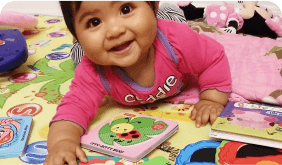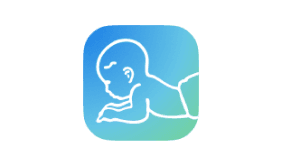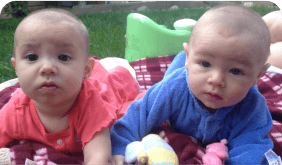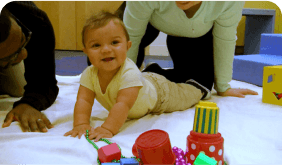Whether your child is reading or not quite yet, childhood books play an important role in their communication development and learning!
Using books and telling stories helps with:
Phonics: connecting written words to sounds and speaking
Vocabulary: learning new words and ways to express themselves
Fluency: being able to speak, read and understand a language accurately and quickly

Comprehension: understanding what they have read or been told, and being able to answer questions about it
Creativity: exploration of ideas and possibilities
Kids are continuously learning how sounds and language work. Children from birth to 6 years old are typically not reading on their own, but they are still constantly developing communication skills, which is why reading books to them and telling stories play an important role, especially in these early years.
Even if they aren’t independent readers just yet, here’s how to get them interested in books!

Familiarize them with books from a young age
As a baby, give them thick board childhood books, sometimes with textured pages, so they get used to the form.
Get in a reading routine
This can be as simple as a bedtime story! We asked Pathways.org parents, and 82% responded that their bedtime routine includes reading to their child. Routine reading can be at any time of the day, just as long as it promotes regularity.
Have them describe the pictures
While they may not know the words on the page, the pictures can help your child become interested in the story. If your child is able to describe a picture, ask them “What do you see?” as you read so they can tell the story with you.
Read their favorite stories again…and again
Have them follow along by pointing to the words as your read them, so they can begin to make connections between the sounds and spelling.
Expand their vocabulary
See if they know what certain advanced words mean; if they don’t, ask them to guess. Make an effort to use some of those words around the house.
Ask them questions about the story
Help their comprehension and creativity by asking them what they just heard, or what they imagine happening. Encourage your child to make predictions by asking them, “What do you think will happen next?”
Encourage them to share their own stories
Reading may inspire writing and storytelling. This promotes fluency, vocabulary, phonics and creativity! If your child isn’t writing on their own just yet, they can draw their story—it’s a great exercise any way they do it.





